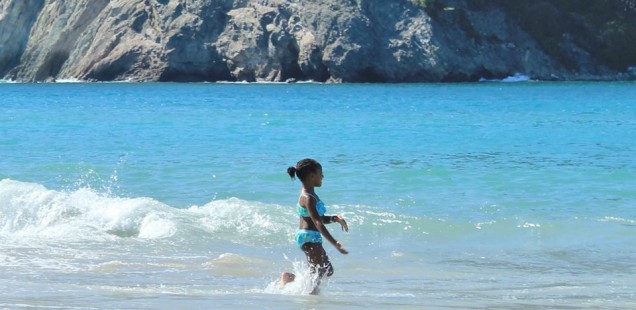
Costa Rica – A Cautionary Tale (Part 2)
I intended to publish Part 2 of A Cautionary Tale shortly after Part 1. But I was too busy planning for my family’s holiday visit (and subsequently too busy having fun with them) to sit down and write. We had one adventure after the next during their time here. Look out for a future post about that trip.
As I began to draft this entry, I realized that it, like Part 1, was also going to be too long to be just one post. Instead of continuing down this path and wearying you with Parts 3 and 4, I’ll attempt to highlight some of the fundamentals. After all, there’s no need for a mini-series. Feel free to leave any specific questions in the comment section and I’d be happy to address them directly.
If you are preparing either to retire or to take a sabbatical in another country, following the right measures can prevent you from squandering money and experiencing heartache. Below is an overview of items to consider, which I’ve broken down into sub-sections to make them easier to identify. Although this post could prove to be the most useful to date, it might also prove to be the most boring. I apologize in advance.
Know Thyself
The first phase in the whole process is truly knowing yourself and honestly assessing your likes and dislikes. I realize that advice sounds a bit self-help bookish, but it is true. Make a list of what you’re looking for in the experience, rank the importance of each item, and then stick to that ranking. No place is perfect for everyone. But some place can be perfect for you.
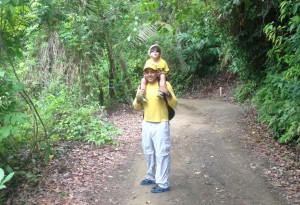
One of the activities Heather and I agreed we wanted to do regularly was go on hikes. Here, we’re at Miro’s Mountain.
We all view the world from our individual perspectives. Like most married couples, Heather and I don’t agree on everything. Once we decided on a family sabbatical, we made our comprehensive list and then had multiple, detailed conversations about each item on it. I say this process is a useful tool for a sabbatical, but I guess it could also lead to a divorce. It’s possible that after going through this exercise, we could have looked at each other and said, “Wow. We have absolutely nothing in common. Why the hell are we even married?” Fortunately, we saw eye to eye on all of the critical elements of this adventure.
Go for a Visit
Even though it can seem expensive, visiting a place several times before you make your final decision will pay huge dividends. Because we had narrowed it down to a short list of other places to which we had already journeyed and Costa Rica (a place where we had never been), we ended up making several visits here to see if Costa Rica was a good fit for us. Those excursions weren’t intended to be fun, and, despite how picturesque Costa Rica is, they truly weren’t much fun. We drove all over the country analyzing the weather, the neighborhoods, the homes, the property managers, the schools, the restaurants, the shopping, the roads, the people, etc. We weren’t tourists. We were operatives on an enormously serious research expedition. Thus, any picture we took or interaction we had was exclusively to further that sole objective.
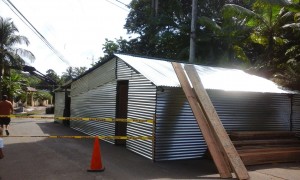
You know the repair is going to take a while when they build a HOUSE for the workers near the thing they’re fixing.
That approach was exhausting and a bit overwhelming, but those trips yielded information we couldn’t have gotten from the internet or guide books alone. You can read that a road to a certain town is not the best, but that might not sway your decision whether to live there one way or the other. When you actually drive it at night in the rain, however, you are more likely to conclude that you absolutely don’t want to live in that location because of the ridiculous road. Or, you might think that you want to be in a town that is not too “touristy”. But then when you get there and it lacks a grocery store and a suitable school, and feels completely isolating due to its lack of a hint of civilization, you realize you’d prefer a town that is a little touristy to one that somehow seems like a prison jungle.
Costa Rica gets its fair share of well-traveled visitors, but there also seem to be a decent amount of tourists and foreign residents who have not spent much time exploring other countries. I say this because many of the complaints I hear are from expats who don’t adjust their expectations and simply compare their experiences here exclusively to their experiences in the U.S. or Canada. But that really isn’t an apples to apples assessment. Admittedly, I get annoyed if something here isn’t on par with places I’ve visited like Kenya, Ethiopia, South Africa, Jamaica, or even Greece. But Costa Rica is not the U.S. I don’t immediately conclude Costa Ricans don’t know what they’re doing because something varies from the U.S.
Back to our friends from Part 1. One of the initial steps they could have taken to help prevent their difficulties was to visit Costa Rica a few times before they moved here. They had the right idea in trying to get a feel for the different cities and neighborhoods Costa Rica has to offer. But they did so after they had already arrived. Researching is extremely difficult to do after the fact, especially if you are having to uproot small children and move them around. It creates a stressful situation because there is the added pressure of feeling like you have to make a place work instead of naturally concluding it’s just not for you.
Really Vet the Housing Options
Once we decided on a city, we looked at a number of neighborhoods and homes within it, and also met with multiple property managers. When renting, the home owner and the property manager here in Costa Rica are vital. Finding someone on the internet is fine, but you need to learn more about them. We asked around about the property managers we met and even contacted the owners of the homes directly. We eventually chose a home where the owner seemed honest and the property manager had a reputation for getting things done. As a result, we have had very few problems with repairs. A number of items have indeed needed to be mended, but the repairs were accomplished in an appropriate timeframe by people who were proficient. I don’t know that I have words to effectively convey how angry I would be if I were waiting day after day for contractors to fix major items who never showed up, instead of enjoying Costa Rica’s stunning beaches or mountains with my family.
As for all of the incidentals we would need to live, we didn’t want to bring furniture from the U.S. or buy it here. So, when examining homes, a significant consideration for us was the presence of items like kitchen utensils, dishes, furniture, and appliances. As we walked through each house, we took pictures of every room as well as of all of the appliances. Prior to signing the lease, we received a list of what was in the unit we selected. On the day we moved in, we met with the property manager and documented the status of each item down to whether a coffee mug already had a chip in it. Was this unquestionably tedious? Absolutely. Was it essential? Maybe not. But that exercise not only assured us the property manager paid attention to details, but hopefully will also protect us in the end.
Despite our unit being well-appointed, we still have found it necessary to purchase more articles than we had planned. Yet, we haven’t spent thousands of dollars. In defense of our friends who did, they didn’t intend to spend this money either. But they were trapped in a situation where they continued to be told furnishings and appliances were on the way. Many of those promised items never materialized, and they opted to buy them themselves rather than having to do without. The takeaway from their experience is to make sure whatever contents you want in your home are already in it before you move in.
Mobile Phones
As I mentioned in Part 1, our friends got hit with an exorbitant mobile phone bill. I don’t consider myself an expert on anything, but I was so worried about potentially having that happen to us, I put a lot of effort into trying to understand how cell phones worked in Costa Rica. When you buy a cell phone in the U.S. with a plan, the cost of the phone is subsidized by the service provider. As a result, you might be able to purchase a phone for $200 that really costs $600 on the open market. The catch is that the phone you bought at the reduced price of $200 has to be used exclusively with a particular provider for a certain period of time.
In Pittsburgh, we had iPhones and used AT&T. Because we had owned our phones for longer than two years, we were able to contact AT&T and request that they be unlocked. Once a mobile phone is unlocked, this means it is no longer tethered to a particular provider. So, with our old iPhones in hand, we were able to come to Costa Rica, manually remove our AT&T SIM cards, and then put in SIM cards from a Costa Rican company to be used here. These SIM cards allow us to make both local and international calls.
Thus, using our existing phones, we each have a Costa Rican phone number and the same U.S. phone number we’ve always had, depending on which SIM card is in our phone at the time. We’ve kept our plan with AT&T, but placed all of the phones in “vacation mode”. Here’s how it works if we’re flying home. Prior to going back to the U.S., we take our phones out of vacation mode via AT&T’s website. Once we land in the U.S., we remove the Costa Rican SIM card and install the AT&T SIM card. Then, when we’re headed back to Costa Rica, we put our phones back in vacation mode and reinstall the Costa Rican SIM card once we land.
As for international calls, even though we can make them with our Costa Rican SIM card, we try not to because those calls are expensive. It just so happens that a lot of people in our respective families have Apple devices. As a result, we use FaceTime via Wi-Fi instead of calling on our SIM card. This is free for both parties whether we FaceTime them or they FaceTime us. If you’re communicating with a non-Apple device internationally, other options are Skype, Tango, WhatsApp, and Viber.
The end result is that we pay about $36 dollars per month to have three phones in vacation mode in the U.S. and about $75 per month to be able to use our phones in Costa Rica without restriction. In 12 months, we won’t spend on three phones what our friends spent in just one month on one phone. Part of the reason that high bill happened to them was because their U.S. mobile phone company sold them an “international” plan. They could indeed make calls in Costa Rica without changing out SIM cards, but those calls came at an extraordinary cost.
Paying Bills
The first point I’ll make about bills is that the ones you have from home might still keep coming despite your best efforts to set up online payments or pay everything off before you leave. Having someone in your home country who is able to get your mail and, if necessary, scan and send documents to you is fairly critical. My parents have had the misfortune of fulfilling this role for us and it’s been a life-saver.
As for your new country, whether it’s noted in your lease, or established some other way, the bill-paying component is one other facet of this experience that is critical. Otherwise, you could find yourself in a difficult situation like our friends did, where their electricity was turned off due to no fault of their own. As an American, I’m used to receiving a bill in the mail (or online) and then paying that bill from my checking account. Although Costa Rica has a mail system that seems to work OK, it is not heavily relied upon to receive and pay bills. Not only that, but one of the aspects in which Costa Rica seems to be extremely efficient is turning off one’s service if the bill hasn’t been paid on time. So I worried about how we were going to navigate what should be a simple task of just paying utilities.
There are different ways of accomplishing this. Here’s what I do. Early on, I received a breakdown from our property manager that showed the day of the month each bill is due. Also, although it’s been a bit of a struggle, I was able to arrange it so our property manager gives us the electric bill that is generated by I.C.E. each month. I always want to see this one so I can examine the overall usage and cost since it varies much more than the others (and because electricity is so expensive). When a bill is due, I visit the grocery store with cash in hand, pick a number, and wait in line like everyone else. Once my number is called, I go to the window, give them the account number, name on the account, and colones. They give me a receipt and I am on my way. Sometimes this process is fast. Sometimes it takes hours. I pay our rent in a similar fashion, except the line I’m waiting in is at the bank instead of at the grocery store.
As I’ve noted previously, generalizations are dangerous not because they are morally wrong, but rather because they are often empirically incorrect. A case in point is my bill-paying experience. Despite the fact that there is a very clear system in place, on several occasions, a Tica has cut in front of me and gone to the window upon my number having been called. The stereotype is that Costa Ricans are a non-confrontational bunch, but these women had some moxie. Of course, on each occasion I also went to the window and the “lady” and I battled it out until she eventually waited her turn. Every time this has happened, I’ve asked myself, “Am I seriously fighting with someone in Spanglish right now at a place that is the equivalent of a Costa Rican Walmart?” Then I’ve responded to myself, “Yep. I am.”
Each instance this has occurred, I couldn’t help but be reminded of the time I was waiting in line at a bank in Nairobi with fellow law students. Just as we were ready to be called after enduring an hour-long wait, European backpackers strolled in and went directly in front of us. A friend of mine confronted them in no uncertain terms, saying exactly this, “I don’t know where y’all are from. But we are Black Americans and we will kick your ass right here. Now get to the back of the line.” I’m not sure if they were fluent in English, but they definitely were fluent in body language because they listened. I believe that colleague might be a judge now. You probably don’t want to be on her bad side in the courtroom.
Banking
Because of the time period for which we are here and the complexity involved in setting up a Costa Rican bank account as a tourist, we had to figure out another way to regularly have access to cash. I’m an advocate of using credit cards to pay for items. The hitch, however, is that you should pay off your balance in full each month. Obviously, this is easier said than done depending on your financial situation. Regardless, not only does using a credit card protect you in certain consumer respects, it also gives you the best exchange rate, and, depending on the card, it accumulates points that you can put to good use.
Costa Rica has a solid banking infrastructure with ATMs all over the country. We set up an account in the U.S. that I manage online and through a mobile app. This particular U.S. bank reimburses us for fees that are charged by any ATM worldwide. So, here in Jaco, we simply go to the ATM like we would in Pittsburgh. Depending on the Costa Rican bank, funds can be withdrawn in colones or in U.S. dollars. This option is helpful because there are certain service providers that prefer dollars and others that prefer colones.
Schooling
The schooling options are public, private, home, and cyber. If you choose cyber schooling, it is imperative that you understand the laws and restrictions of your state. Can you use their services outside of the state? How about outside of the country? If you opt to use some type of national cyber school instead of one from your state, will the credits transfer? If you’re going to do home schooling instead of cyber schooling, what is involved in that process?
Heather put an inordinate amount of effort into figuring all of that out before we came here and it has still required regular work on her end to make it all go smoothly. Once our friends were in Costa Rica, they were faced with some unpleasant surprises about the logistics of how their cyber schooling program worked. You want to do your best to troubleshoot potential issues on the front-end. If it is feasible, there is always the option of enrolling your child in a local school. It pays off to look into the schooling issue early in your planning process, as this might dictate where you’ll end up. In fact, part of the reason why we chose Jaco was for the schooling options in the area.
Health Insurance
We kept our U.S. health insurance in place because our deductible had already been met, but we purchased an international plan as well. We pay out of pocket for health care here and retain the receipts. From what I can tell, the international insurance is essentially a high-deductible plan that would be beneficial in the event of some tragic accident. Given the combination of how active we are here coupled with the natural perils that a place like Costa Rica has to offer, it is conceivable that we could need that insurance at some point.
Spend some time researching what is best for you. There are international insurance brokers out there, and you can find and analyze various plans via the internet. Some U.S. health insurance companies even offer international coverage. Because medical care is relatively inexpensive in Costa Rica, many people opt to forego any insurance here. But catastrophic accidents and unplanned serious medical conditions are costly anywhere, so we wanted a little safety net.
Transportation
Because I’ve already covered cars and driving in Costa Rica ad nauseam in a previous post, I’ll spare you those details. But this list would not be complete without considering transportation. You will need to spend some time thinking about how you plan to get around in your new country. Can you get by with buses, trains, and taxis or will you need to drive? If you do need to drive, can you make arrangements for a long-term rental car? That might be the easiest, but not always the cheapest option. Does it make sense to ship or drive your car to this new country? If none of these options will work, then you may need to consider buying a car.
Packing
I’ve done an entire post about this topic and our difficulties with leaving Pittsburgh. Now that we have some distance from this, we can laugh about it and even talk without fighting about what we’d do differently. If you are a family who feels they need all of their own stuff, then price out a shipping container. We were content with what was in our place, so we only brought items that would make our lives simpler, that we might not be able to find here, and that could easily fit into our luggage. On the trips you take for research, make an effort to go to grocery stores and pharmacies and look at the prices for everyday items you’ll need. In Costa Rica, for example, insect repellent and sunscreen (two items we use every single day) are ridiculously expensive (like $20 a bottle for quality sunscreen). As a result, we brought down an arsenal of those items and we stock up again every time we come back to the U.S.

You know something costs a lot of money and is likely to get snatched if it has a security tag on it.
Start your list of these contents early on in the process and keep that list handy so you can quickly add to it. Include items like small kitchen gadgets you can’t live without, tools, DVDs for kids, portable Bluetooth speakers, flashlights, nightlights, clothes hangers, various medications, etc. It’s doubtful you will think of everything, but if you allow yourself time to develop your list gradually, it’s going to be more comprehensive than whatever you remember when you’re trying to pack your bags.
Other Considerations
Other miscellaneous tasks to do are acquiring copies of your family’s medical, dental, and vision records as well as cancelling any unnecessary magazine or newspaper subscriptions you have. You’ll also want to set up electronic statements and payments with creditors and notify your credit card companies that you’ll be traveling in another country for a period of time. If you are seeking residency in your new homeland, some countries require the submission of a police record (showing a lack thereof). This is easier to get while you are in the U.S. than it is once you are outside of it.
As is evidenced by the length of Parts 1 and 2, there are scores of pitfalls to avoid. But, despite the seemingly daunting amount of effort that is required, this experience is more doable for people than you might think. Most importantly, the effort required to pull this off pales in comparison to the gratification you’ll get from a sabbatical. Granted, having travel experience and street smarts helps in the planning process, but thoroughly researching and considering all of the elements I have highlighted will get you on your way.
Above all, what I’d like you to come away with from this entry is the sage advice that was told to us from someone who has been living in Costa Rica for many years. “Don’t get a second opinion. Get a fifth.” Not only is this judicious guidance as you prepare for retirement or a sabbatical in another country, but it’s also a sound policy for when you are actually in the midst of it. We’ve gotten varied answers to all of the questions we’ve asked along the way. Those varied answers, however, have helped us make informed decisions.
I’d be remiss if I didn’t point out that everything we’ve done to date hasn’t been perfect. In fact, if a post in the future is titled “We’re Coming Home Earlier than We Thought”, it probably will be because we ran out of money due to the fact that our food costs exceeded our budget by about 50%. Therefore, my suggestion is that you read four other blogs in addition to this one. After all, I’m no expert.
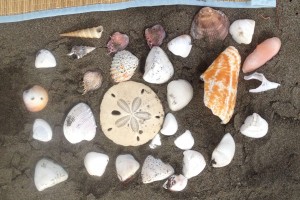
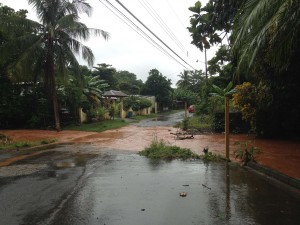
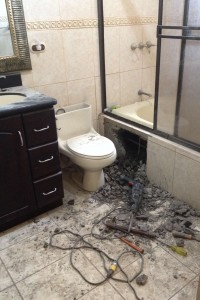

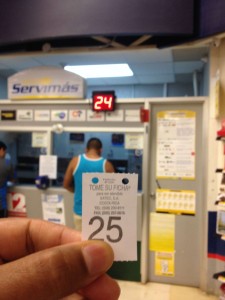
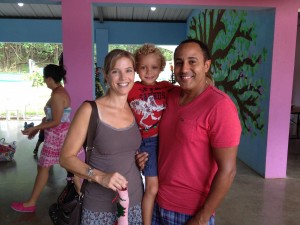
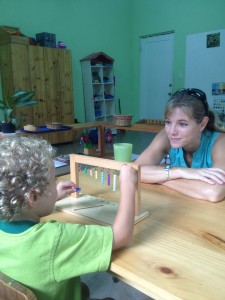

Great post. Sound advice.
Hi Jamie,
We met you and your wonderful family a couple of days ago at the Croc tour outside of Jaco and wanted to say ‘Hi’. This trip was supposed to be a research trip, but with twins now on the way, it’s turned into a pura vida vacation.
Being in IT, I’m able to work remotely and thought about making the move down for a few years. I then pulled the plug with the news of our arrivals.
Then, having spent just a few minutes with you and seeing how happy your son looked, my wife and I enjoyed some thoughtful sunset conversations about what it would be like to make the move in a few years once the kiddies are a little older.
You mentioned you’re about 3 months from returning home, so our prayers are with you for a great end to your trip and safe travels back home.
Tim, Zennoma Daniel and Tahani
Thank you for commenting. It was great meeting all of you. This has indeed been a phenomenal experience for us. Given your background in IT, the potential exists for you to have the best of both worlds and work remotely while enjoying Costa Rica. As you get closer to pulling the trigger, feel free to contact me either on the blog or directly. I’ll do my best to answer any questions you have. The logistics of doing this were pretty challenging, but the payoff was absolutely worth it. Congratulations and good luck with the twins. If we had two of our son, we would have even more gray hair than we do already!